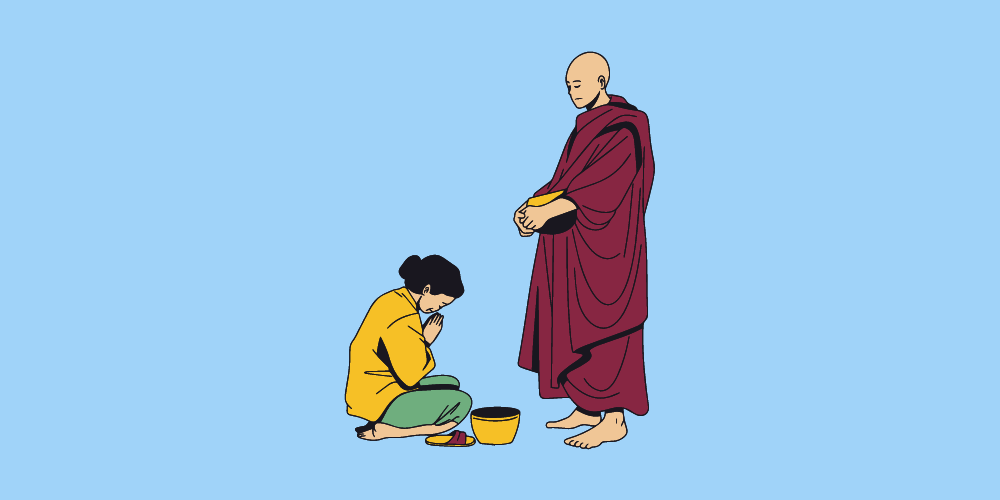Table of Contents Show
In 1939, Huynh Phu So, a Buddhist reformer, founded a Vietnamese Buddhist religious movement known as the Hoa Hao Movement.
Explanations
The Hoa Hao Movement, also known as the Hoa Hao Buddhist Church, is a religious organization in Vietnam that was founded by Huynh Phu So in the early 20th century. It is a syncretic religion that combines elements of Buddhism, Taoism, Confucianism, and local Vietnamese beliefs.
The movement gained a significant following among the rural population in the Mekong Delta region of southern Vietnam. Its teachings focus on personal morality, social responsibility, and spiritual practices that emphasize compassion, humility, and respect for one’s parents.
During the 1940s and 1950s, the Hoa Hao Movement played a significant role in Vietnamese politics. It supported Vietnamese independence from French colonial rule and opposed both the French and communist forces led by Ho Chi Minh.
After the reunification of Vietnam in 1975, the Hoa Hao Buddhist Church faced persecution and suppression by the communist government. Despite this, the movement still has a significant following, particularly in the Mekong Delta region. It is known for its charitable work, including providing free medical care and education to the poor.
The Hoa Hao Movement has also had a significant impact on Vietnamese culture and literature. Its poetry and literature are noted for their simplicity and clarity, reflecting the movement’s emphasis on spiritual and moral purity.
Reason of Hoa Hao Movement
The Hoa Hao Movement was founded by Huynh Phu So in the early 20th century in Vietnam. There were several reasons for the emergence of this movement, including:
- Religious inspiration: According to the founder Huynh Phu So, he received a divine message from the Buddha, which inspired him to establish the Hoa Hao Movement. This message instructed him to spread the teachings of Buddhism and promote spiritual purity among the people of Vietnam.
- Social and political context: Vietnam was undergoing significant political and social changes during the early 20th century. The country was under French colonial rule, and there was growing discontent among the Vietnamese people. The Hoa Hao Movement emerged as a response to these changes, offering a message of hope and empowerment to the people.
- Local traditions: The Hoa Hao Movement drew on local traditions and beliefs, including Confucianism, Taoism, and Vietnamese folk beliefs. This helped to make the movement more accessible and relevant to the people of Vietnam, particularly those in rural areas.
- Emphasis on personal morality: The Hoa Hao Movement emphasized the importance of personal morality and spiritual purity. This message resonated with many people in Vietnam, who were seeking guidance and meaning in a time of great change and upheaval.
Overall, the Hoa Hao Movement emerged as a response to the social, political, and spiritual needs of the Vietnamese people during the early 20th century. It offered a message of hope and empowerment, drawing on local traditions and emphasizing personal morality and spiritual purity.
Forms of Hoa Hao Movement
The Hoa Hao Movement takes the form of a syncretic Buddhist religious organization, known as the Hoa Hao Buddhist Church. Its religious practices combine elements of Buddhism, Taoism, Confucianism, and local Vietnamese beliefs.
The movement is decentralized, with each local congregation being relatively independent and self-governing. The Hoa Hao Buddhist Church does not have a centralized hierarchy or formal structure, and its leaders are typically chosen through a process of consensus among the local congregation.
The Hoa Hao Movement places a strong emphasis on personal morality and spiritual purity. Its teachings include the importance of respect for one’s parents, honesty, humility, and compassion. The movement’s spiritual practices include meditation, reciting mantras, and performing acts of charity and service to others.
The Hoa Hao Buddhist Church also places a strong emphasis on social welfare. Its members are known for their charitable work, including providing free medical care, education, and other services to the poor. The movement’s emphasis on social welfare reflects its commitment to improving the lives of the people of Vietnam and promoting a more just and equitable society.
Overall, the Hoa Hao Movement takes the form of a decentralized, syncretic Buddhist religious organization, with a strong emphasis on personal morality, spiritual purity, and social welfare.
When Did Hoa Hao Movement Begin?
The Hoa Hao Movement began in Vietnam in the early 20th century. It was founded by a man named Huynh Phu So in 1939 in the Mekong Delta region of southern Vietnam.
Huynh Phu So claimed to have received a divine message from the Buddha, instructing him to spread the teachings of Buddhism and promote spiritual purity among the people of Vietnam. He began preaching his message to the local people, and the movement quickly gained a following.
The Hoa Hao Movement grew rapidly in the 1940s and 1950s, particularly in the Mekong Delta region, and became an important political force in southern Vietnam. Its members provided support for Vietnamese independence fighters, and the movement played an active role in the resistance against French colonial rule.
Today, the Hoa Hao Buddhist Church continues to be an important religious and social organization in Vietnam, with millions of followers throughout the country.
Important role of Hoa Hao Movement
The Hoa Hao Movement has played an important role in Vietnamese history and society in several ways:
- Resistance against colonialism: The Hoa Hao Movement played an active role in the resistance against French colonial rule in the 1940s and 1950s. Its members provided support for Vietnamese independence fighters, and the movement became an important political force in southern Vietnam during this time.
- Promotion of social welfare: The Hoa Hao Buddhist Church has a long tradition of promoting social welfare, particularly in the Mekong Delta region. Its members are known for their charitable work, providing free medical care, education, and other services to the poor.
- Preservation of Vietnamese culture: The Hoa Hao Movement has had a significant impact on Vietnamese culture and literature. Its poetry and literature are noted for their simplicity and clarity, reflecting the movement’s emphasis on spiritual and moral purity.
- Influence on Buddhism in Vietnam: The Hoa Hao Movement has had a significant influence on the development of Buddhism in Vietnam. It has helped to promote a more accessible and democratic form of Buddhism that emphasizes the importance of social welfare and personal morality.
Overall, the Hoa Hao Movement has had a significant impact on Vietnamese history and society, promoting resistance against colonialism, social welfare, preservation of culture, and the development of Buddhism.






